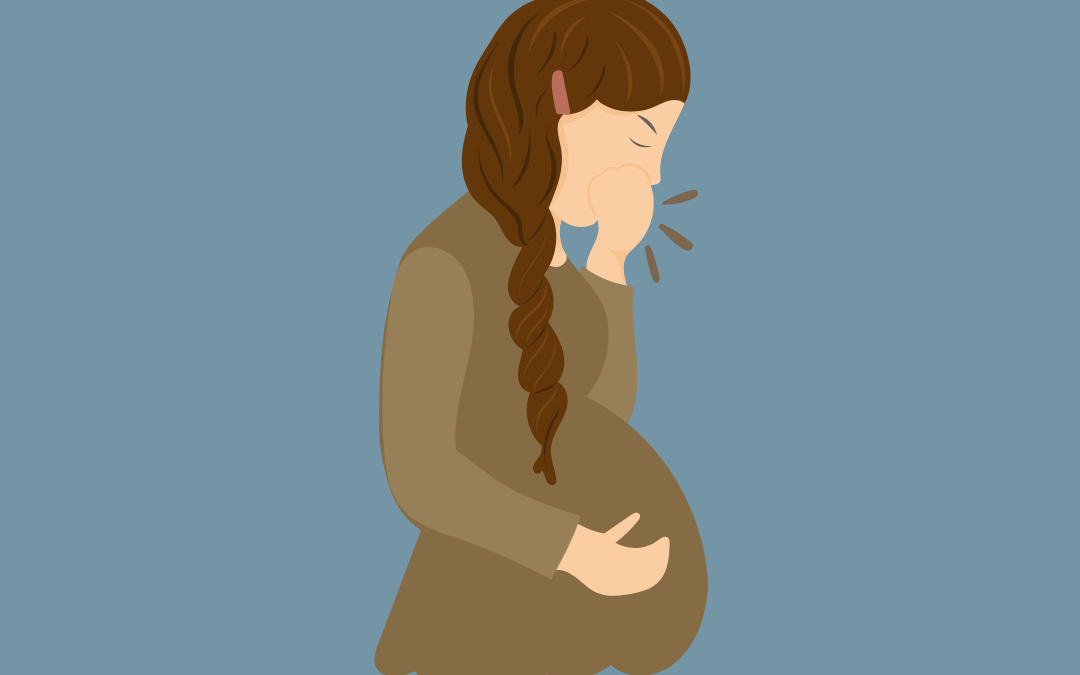The incorrectly named ‘Morning Sickness’ is something that affects a lot of pregnant women. Understandably this nausea, even vomiting, can be a real pain. Everyone is different of course. Some will glide through completely fine whilst others end up suffering throughout their pregnancy. Here are our tips for handling that pesky morning sickness. But first…
What is morning sickness?
As outlined above, morning sickness is a misnomer. Yes, the symptoms frequently occur earlier in the day, but the reality is it can hit you at any time or last all day (how grim). It normally starts during early pregnancy and is often cleared up by Week 18 (it can be done before then or last a little longer – all very normal). More often than not it is a completely harmless part of the pregnancy journey. It comes about due to the changes in your body such as hormone levels as well as changes in your senses.
Take a look at this NHS guide to morning sickness, and be mindful of some of the serious consequences. Excessive nausea and vomiting is known as hyperemesis gravidarum which will need treatment. If you have any concerns at all, we recommend you speak to your midwife, GP or dial 111.
Symptoms of morning sickness
As you would expect the symptoms of morning sickness are…
- Feeling like you are going to be sick (nauseous)
- Actually being sick (vomiting)
- Loss of appetite
There are also some psychological effects too such as depression and anxiety.
Is there a cure for morning sickness?
There is sadly no hard and fast cure for morning sickness, but there are certain ways of coping with the symptoms. A lot of the time it is a home remedy or whatever works for you. Here are a couple for you to try and where possible some facts to back them up.
Food
Maybe you are happy to eat everything you normally do and maybe that one favourite food you had suddenly repulses you, either way how you handle food can make a difference to your nausea levels.
If the smell of a certain food makes you gag, avoid it! Make sure you let people know this too, so that you don’t accidentally get set off by someone else. During pregnancy, those pesky hormones could be the reason your sense of smell is stronger so you might find things a bit more intense. It isn’t 100% known why this happens but, according to this Frontiers article, about two-thirds of people experience it.
What you eat can also affect your morning sickness. It is already a minefield trying to keep healthy and care for your body without the bonus of maybe feeling sick after eating. It is all about balance and finding a system. Some find that lots of small meals rather than big main meals can help them out. Avoiding anything super fatty, spicy or flavoured can help keep things neutral too. Eating something plain like crackers or dry toast before you get out of bed can be something to help you alleviate some of those symptoms if you aren’t suffering too badly… watch out for crumbs!
And of course, fluids. Keep yourself hydrated. Sipping on water can help you stop feeling nauseous but on top of that, if you are throwing up, you will need to keep on top of your hydration anyway, so ensure you always have water nearby.
Rest
The obvious but sometimes forgotten thing, particularly in early pregnancy, is rest. Do not forget to get plenty of rest, especially if you don’t feel well. Take some time to check in with yourself and don’t push it. You can stave off some of that nasty sick feeling just by taking a few moments to sit down and do nothing.
Screen time
In this age of technology, we are looking at screens all the time. Sounds odd though to think that your screen could make you feel unwell. People often get headaches staring at a bright screen – the glow and sometimes slight strobe effect can make you feel sick. Reduce that eye strain by adjusting brightness, taking a break, or just closing your eyes now and then just to help filter out some of that light.
Medications
If all the weird and wonderful things you find online or get told by friends (sometimes strangers!) to try don’t work, there are medications you can try. For this one, get in touch with your midwife or doctor and see what they would recommend. Never take anything without consulting them first.
Quick Tip
Don’t feel you have to put things on hold whilst going through the motions. If you feel up to going out, exercising, or seeing friends and family – go right ahead. You can always be prepared though JUST in case. Chuck a spare shirt in your bag in case you need it and carry some mints (if they don’t make you gag!) so you can stay fresh and always have a little snack on you so that you aren’t left with an empty stomach.
Request a Welcome Pack
Find out more about cord blood banking by downloading a Welcome Pack now.








